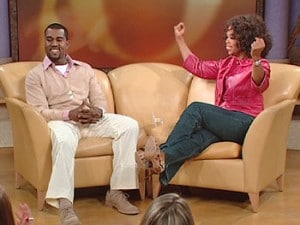5 Aha! Uses for Thank You
I was once pulled over by a police officer as I was driving along a busy road. When he approached my truck window, he was very stern and gruff. He explained that he pulled me over for speeding. As he spoke, I had a million thoughts running through my mind, from "I want to crawl into a hole and die because people are driving by looking at me like a common criminal," (or so I perceived) to "Ahhh! Why is this officer so scary?" to "How am going to explain this to my safe-driving-stickler husband?" When the officer handed me the nausea-inducing slip of paper that was the speeding ticket, the only thing that I could think of to say that made me feel somewhat decent was "Thank you." Yes, I gathered myself up enough to quickly realize that any excuse for speeding would be pathetic and that being flippant, defensive, or mad would just make me look like a fool. So I said "Thank you." It was then that the officer looked me with surprise in his eyes and dropped his hard core demeanor. He softened his tone, bid me a gentle goodbye, and went along his way.
03 July, 2015
/ 0 Comments







